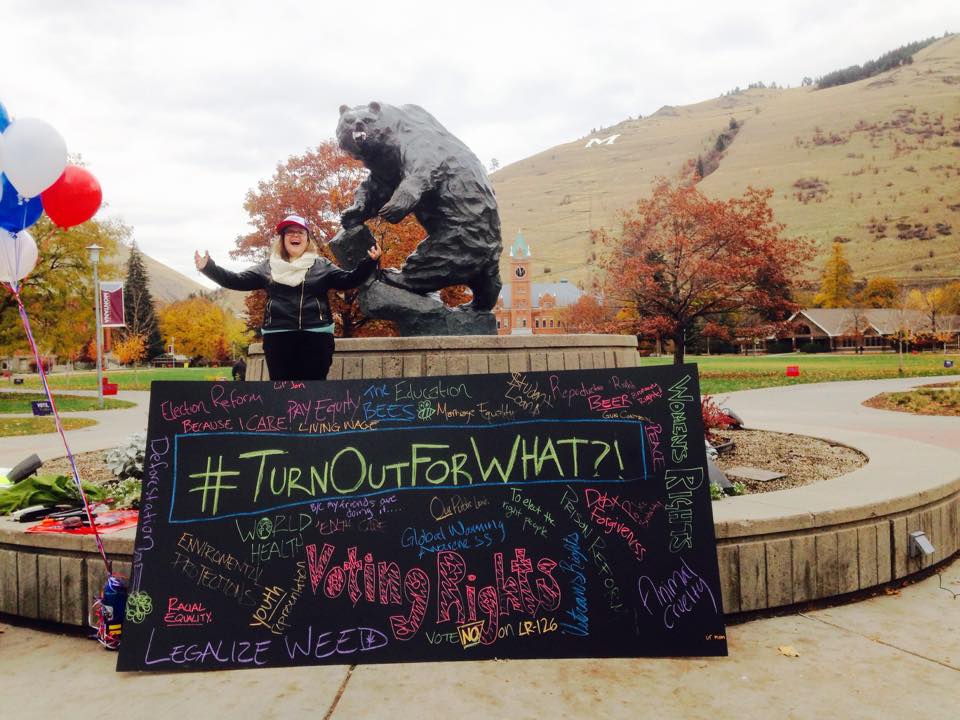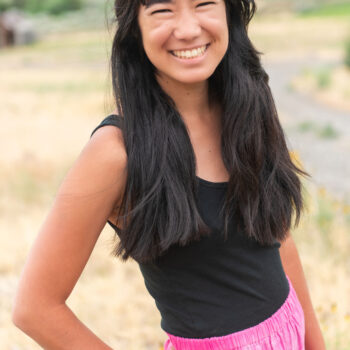Montana’s 2020 election results left me curled up in a little ball, void of any emotions. Democrats had lost a highly publicized U.S. Senate race, the Governor’s race, and other down-ballot races. For the first time in nearly a century, one political party dominated the executive and legislative branches of government. The impact of these losses was immediately apparent during the 2021 legislative session: GOP leadership enacted regressive policies that (among other things) curtailed First Amendment rights, rolled back environmental protections, prohibited transgender youth from accessing healthcare, attacked unions, and gave tax breaks to the wealthy.
In the wake of such a devastating election and legislative session, progressive youth organizers in Montana have been forced to redefine what success looks like. I lead Forward Montana, a youth-led organization that builds the political power of young Montanans. While our strategy centers on long-term power building, we’ve traditionally measured the impact of our programs through short-term metrics, such as increases in voter turnout and the number of newly registered voters. For the next few years, given the makeup of our legislative bodies, success cannot be measured by electoral or policy wins alone. Instead, we will redefine success by the spaces and narratives that our movement creates. We’re organizing so that young people feel seen, valued, and heard, even in the midst of oppressive policies. This is the essence of building long-term power, especially when it’s hard to win in the short term.
Success in Individuals
In the fast-paced world of campaigns, it’s not easy to take the time to teach someone a new system or to entrust emerging leaders with critical work. The urgency of the moment can prevent us from creating space for collaboration and learning. That’s why it’s important to intentionally carve out time and resources for training opportunities and feedback sessions — and to use the time in between elections to invest in developing the leadership of new members.
In youth organizing, success should be measured not only by the number of young people mobilized or trained but by who they become in years to come. Leadership development is transformational learning that is critical to building the infrastructure necessary for social change. As each young person embarks on their own journey, finding confidence in their identity and disentangling their political beliefs from those of their family, our leadership development must center trust, patience, and growth.
Bradley (they/them) is a member of the A’aninin Nation who grew up in rural Montana. They witnessed their people struggling and learned how systems were created without their people in mind. They started to believe that their voice didn’t matter. But after connecting with the community of Forward Montana, Bradley learned not only that their voice matters, but that it has power. Bradley now uses their voice to organize around racial justice issues and support other young activists.
McKeely (she/her) grew up in a conservative family in Kalispell. As she grew older, she realized that the conservative values her parents espoused didn’t align with the actual values they taught her, and she started to develop her own political identity. McKeely is now our high school program manager and mentors students across the state. She facilitates difficult discussions about power and privilege, often with students who are learning about these concepts for the first time. This mentorship includes weekly classes and check-ins, individualized attention on final projects, and opportunities for connection. McKeely reflects, “I believe in young people discovering who they are and changing their minds many times.”
While Bradley and McKeely have different identities and upbringings, both needed a political home to find their voices and embrace their beliefs, values, and identities. Young people like McKeely and Bradley are leading a new wave of activism that lays the foundation for a progressive future.
Success in Community and Relationships
Rural organizing can be challenging because it’s lonely. With the exception of tribal communities, most rural parts of the state are conservative. Because conversations about issues as simple as democracy aren’t received well, even approaching a stranger to ask them to register to vote can be an act of courage.
These were things we didn’t realize when we hired Brian in a region known as the Flathead. Brian (he/him) lives in a tiny town of less than a thousand people. He organizes young people in a conservative part of the state that’s known for Richard Spencer’s troll storm. When we launched an internship program in the Flathead this summer, we had zero expectations. We didn’t know if anyone would apply. To our delight, four incredible young people joined us as interns, gaining community organizing skills and building community with like-minded individuals who intimately understand their struggles.
Another tactic we developed to build community in the aftermath of the 2020 elections and legislative session is Transcendent Joy: A Zine for and by LGBTQ2S+ Montanans. The crowd-sourced zine celebrates queer and trans youth for all that they are, giving them an outlet to be themselves in a state where many are trying to deny their existence. The Zine offers queer and trans youth an opportunity to reclaim space, embrace joy, and push a visionary narrative. To be bold, visionary, and loud under an oppressive regime is a huge victory.
Conclusion
Redefining success isn’t a new concept. Leaders in the equity and justice field have been urging white-led nonprofits to shift away from a metric-driven culture for decades. As electoral organizers, this can be a challenging shift to make — at the end of the election cycle, there’s a clear winner and loser, and the results have a tangible impact during the next legislative session. Redefining success can feel like painting too sunny of a picture over a bleak reality. In practice, it’s a tool borne out of necessity, a strategy to remain resilient and hopeful when confronting harsh realities.
Transcendent Joy exemplifies this truth. The zine’s editor, Izzy Milch (they/them), writes, “I am choosing to see the world, this country, this state, not for what it is, but for what it could be…there is no road map to this place; we have to draw it ourselves. This is a commitment; a commitment to work, every day, in ways big and small, to reshape reality. To imagine what could be, and to breathe it into existence.”
I want the rest of America to see the rural America that I see: the queer and trans youth and youth of color refusing to be ignored and the young people demanding progressive change in order to save our planet and humanity. There are young people like Bradley, McKeely, Brian, and Izzy across Montana — young people in the most unlikely of places, pushing the boundaries of what is possible.
My message to progressive organizers in states like Montana is to never stop dreaming for the world that our communities and our people deserve because they are worth fighting for. You are worth fighting for.

